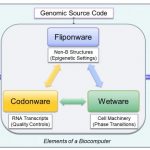‘The End of Everything’ explores the ways the universe could perish0
- From Around the Web, Science & Technology
- August 5, 2020
A new book looks at the Big Crunch, the Big Rip and more terrifying scenarios

A new book looks at the Big Crunch, the Big Rip and more terrifying scenarios

With just one week of training, a pack of dogs in Germany has learned how to detect COVID-19 in human samples.

The trigger for “Snowball Earth” global ice ages may have been drops in incoming sunlight that happened quickly, in geological terms, according to an MIT study.

The world’s biggest nuclear fusion project has entered its five-year assembly phase.

Work has begun to assemble giant components to build an experimental nuclear fusion reactor in France that is expected to start up in 2035 and deliver energy in a process inspired by the sun, the ITER project said on Tuesday.

A team of biologists from Japan and the United States has successfully revived aerobic microbes found in 101.5-million-year-old sediments from the abyssal plain of the South Pacific Gyre, the part of the ocean with the lowest productivity and fewest nutrients available to fuel the marine food web.

The ancient Greeks dove into this question. But what do modern scientists think?

They’ll be “as close as possible in both taste and appearance” to the real thing. We’ll see about that.

Dr. Herbert asks what if our genome was far smarter than everyone previously believed?

Scientists working with the Russian sturgeon and American paddlefish have accidentally created a new hybrid species.